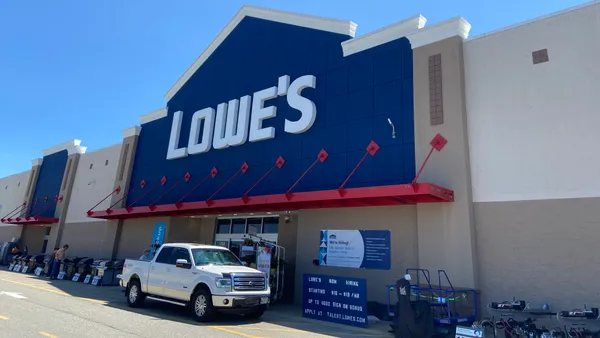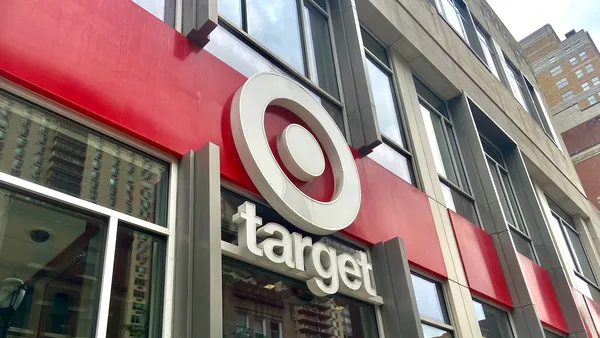Dive Brief:
-
Canadian fast casual restaurant chain Freshii on Monday announced it’s closing all 18 concessions it has in Target stores, ending a roughly two year partnership, according to a press release. Closures of the 18 locations began in mid-September and will continue through October, a spokesperson for Target told Retail Dive in an email, adding that Target team members are not impacted by this change.
-
In the past couple of years, Target has replaced its traditional popcorn and hot dog concessions with sleeker Starbucks cafes, Freshii’s food and Which Wich deli sandwiches. "As part of our store remodel plans, we are evaluating how the space at these locations will be used," the Target spokesperson told Retail Dive. "As with all of our stores, these locations will be customized to best meet the needs of the guests they serve."
-
Food sales at the locations didn’t support continued investment, both parties said, with Freshii adding in its press release that it conducted an extensive review of its Target relationship and has revised its non-traditional location model going forward to include an increased focus on tailoring menu offerings and improving in-store labor practices.
Dive Insight:
Freshii's healthy kale- and quinoa-infused food offerings is on brand for Target, and these closures may reflect the food chain's overall struggles with store count growth at least as much as any failure of its tie-up with the American mass merchant.
As retailers vie for customers and deal with excess space, many are turning to food and beverage concessions to drive traffic. Finding food purveyors that resonate with a retailer's customer base is the usual approach, although Walmart, whose food concessions tend to be McDonald’s and other inexpensive fast fare, recently teamed up with Grown, a new "fast-casual" (and a bit more expensive) effort from Shannon and NBA star Ray Allen to offer trendy foods like avocado toast and cold-pressed juices.
The National Restaurant Association calls retail-host restaurants one of the fastest-growing segments for restaurant food, expanding at an annual rate of close to 6%. Defined as restaurants located within health and personal care stores, general merchandise stores, variety stores, food stores and grocery stores, gasoline service stations and other miscellaneous retailers, retail-host restaurants topped $40.5 billion in sales in 2015, up from $29.5 billion in 2009.
While the in-store food and beverage opportunity is undeniably appetizing, opening a successful and complementary retail-host restaurant is a complex proposition that entails a lot of decision making about who a retailer’s customers are, experts say. Executives also must determine what the restaurant’s purpose will be, and how it fits emotionally within a retailer's brand as well as physically within its real estate.
The retail-host restaurant concept doesn't work for all merchants. Last year, Kohl's scrapped pilot “Kohl’s Café” locations introduced less than seven months earlier in two southeastern Wisconsin stores, citing a negligible impact on traffic and sales. But when the pieces fall into place, in-store dining (especially retail-host restaurants in urban environments) offers consumers something unique and compelling that digital commerce simply can't deliver.
“The most important thing today in retail has become offering an experience,” Jim Bieri, principal of Detroit-based commercial real estate brokerage Stokas Bieri, told Retail Dive last year. “People do not have to come to [a] store because they can buy from their living room — actually, they can buy from their car, they can buy from the train. There’s no question that if you [do a restaurant right], customers will spend more time and will spend more money.”













